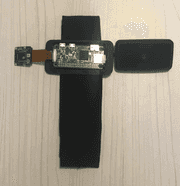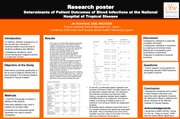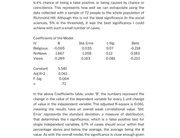Hi there! I'm
Jin Schofield.
I'm chasing my curiosity.
Hi I'm Jin!
I'm studying computer science at Princeton. I update this website with projects I've been working on, things I am learning about in my blog, and experiences I have had! You can download my resume here.
Experience
Here are a list of some of my past experiences and awards .
Product Intern - GPTZero AI(May 2023 - August 2023)
I contributed to product design, lead marketing initiatives, as well as conducted user interviews with target users, relaying recommendations to the design and product teams of GPTZero, an AI edtech start-up with $3.5 million in funding.
- Worked on the product team to design new features
- Wrote a weekly newsletter for 45 000 subscribers
- Conducted product beta tests and user interviews
- Published blog posts about the progress in AI in education
Data Science and Machine Learning Intern - Oxford University Clinical Research Unit (July 2023 - August 2023)
I used descriptive statistics and machine learning algorithms to analyze 300-patient data sets and identify factors contributing to patient outcomes in Hanoi's National Hospital for Tropical Disease.
- Used R to conduct descriptive statistics and multivariate linear and logistic regressions
- Cleaned and organized 300-patient dataset
- Shared findings with Oxford University research institutions
Research Intern - ARiEAL Laboratory, McMaster University(July 2022 - August 2022)
I conducted literature reviews about the event-related potential (ERP) EEG analysis technique when applied to cognitive linguistics EEG experiments. I contributed to the design of research-grade experimentation seeking out how to preserve the teaching of indigenous languages in Ontario.
- Identified optimal impedance levels for research-grade EEG use
- Identified optimal experiment design for syntactic EEG P600 experimentation
- Helped design and conduct pilot study
Software Development Intern - Hybrid Biomedical Optics Laboratory at York University (June 2021 - August 2021)
I interned to help in the creation of an immunoassay bodily fluid THC detection device.
- Manipulated back-end C++ code of SeekThermal infrared cameras
- Used Python to help design and program an interactive user interface prototype for the THC detection device
- Researched C++ libraries for next steps in device development
President - Princeton University Neurotech Club (October 2022 - Present)
I am president of Princeton University's Neurotech Club.
- 3D-prints and assembles 16-channel OpenBCI EEG device
- Tinkers with Muse headsets
- Hosts wokshops, lessons, and get-togethers
Other Princeton University Extracurriculars
- Princeton AI Club - Officer
- Princeton Blockchain Club - Officer
- Prospect Student Ventures - Analyst
- Bioventures Alimtas - Member
- Entrepreneurship Club: Forge - Member
Awards
- Finalist at Princeton 2023 Pitch Competition (April 2023)
- 1st place at Junior Achievement Americas (Competed Against 21 Nationally-Placing Teams from 11 countries), International
- $10 000 Youth Impact Challenge Winner (August 2021), National
- $5000 DMZ Basecamp Champion (August 2020), International
- Canada-Wide Science Fair, Winner of Silver Excellence in Senior category, UofT Engineering Award ($1000 Prize; $11 000 in scholarships)
- 1st Place HOSA Nationals FLC in Medical Innovation (December 2020), National
- Best Pitch - RBC Ideathon Pitch Competition (August 2019)
- Winner - The University of Toronto's Women in Science and Engineering Design Competition
Projects
These are various projects I have worked on!
ConchShell
ConchShell is a wearable ASL translator to help the speech-impaired communicate by converting ASL letters into a voice. I used Python, Google's open-source MediaPipe (largely in C++), and Pytorch for a neural network that was trained on 30 000 samples of training data generated by myself and ASL users I contacted. I used a Raspberry Pi Zero W and camera for testing. My friend and I raised $16 600 in funding. We completed a prototype that operated with 94% accuracy and underwent the DMZ start-up accelerator.
- PyTorch
- MediaPipe
- Python
- Raspberry Pi
AIstotle
At the HackPrinceton hackathon, I built a chrome extension that allows you to pause a YouTube video, ask a question, and then have the extension respond using the YouTuber's voice. It is capable of answering your question, rewinding the video to a relevant time, or recommending another video. We used GPT-4 Vision, GPT-4, ElevenLabs, and retrieval-augmented generation .
- GPT-4
- GPT-4 Vision
- RAG
- ElevenLabs
Determinants of Patient Outcomes of Blood Infections at the National Hospital of Tropical Disease
I made use of descriptive statistics and linear and logistic regressions in R to find factors (e.g. resistance to antibiotics, type of pathogen, etc…) that contribute to various patient outcomes in a 300-person patient data set at the National Hospital of Tropical Disease in Hanoi, Vietnam.
- R
- Multivariate Linear Regression
- Descriptive Statistics
- Data Science
The Rise of Allergies: An Investigation on Why It Is Occurring and How to Stop It
I published a research paper, "The Rise of Allergies: An Investigation on Why It Is Occurring and How to Stop It" in the Vanderbilt Young Scientist Research Journal. I surveyed 150 people about their allergies and lifestyle during their gestation and childhood. I used SPSS to run linear regressions to find significant factors contributing to allergy development.
- SPSS
- Multivariate Linear Regression
- Multivariate Logistic Regression
An Assessment of the Significance of Various Air Pollutants on Public Health on a Global Scale
I conducted a study, "An Assessment of the Significance of Various Air Pollutants on Public Health on a Global Scale". I assessed the significance of various air pollutants on disability-adjusted life years (attributable to air pollution) and provides policy recommendations based on the economic strength of each country. I gathered data for 5 air pollutants (nitrogen dioxide, sulfur dioxide, carbon dioxide, methane, fluorinated gases) as well as sector-specific data for carbon dioxide from reliable sources such as the WHO and WRI.
- Multivariate Linear Regression
- Descriptive Statistics
Determinants of Views on Euthanasia in Richmond Hill, Ontario
I wrote a paper exploring factors correlating with certain opinions about euthanasia. I surveyed 72 people in Richmond Hill, Ontario, and used SPSS to run linear regressions to find significant predictors of whether someone would support or not support euthanasia. Examples of independent variables included whether one grew up in a religious family and how often they watched cable news.
- Multivariate Linear Regression
- Descriptive Statistics






